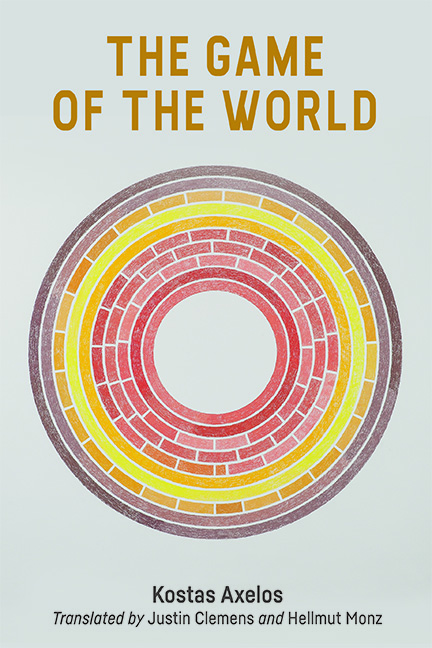Book contents
- Frontmatter
- Contents
- Translators’ Introduction
- Prelude
- Opening. The Great Powers and the Elementary Forces of the World
- I Logos. The Language and Thought of Man and the World
- II That. The Play of the Being in Becoming of the Fragmentary and Fragmented Totality of the Multidimensional and Open World
- III God-Problem
- IV Physis. The Cosmic World
- V The Human in the World
- VI World History
- VII The World of Poetry and Art
- VIII Being-Nothingness, Everything-Nothing, the Unworldly World
- IX The Game of the World
- Notes
- Analytical Table
IX - The Game of the World
Published online by Cambridge University Press: 17 November 2023
- Frontmatter
- Contents
- Translators’ Introduction
- Prelude
- Opening. The Great Powers and the Elementary Forces of the World
- I Logos. The Language and Thought of Man and the World
- II That. The Play of the Being in Becoming of the Fragmentary and Fragmented Totality of the Multidimensional and Open World
- III God-Problem
- IV Physis. The Cosmic World
- V The Human in the World
- VI World History
- VII The World of Poetry and Art
- VIII Being-Nothingness, Everything-Nothing, the Unworldly World
- IX The Game of the World
- Notes
- Analytical Table
Summary
The ‘game of the world’ is not a metaphor forged from human games and the game in the world. It is – empirically or ontologically, transcendently or transcendentally, anthropologically or existentially – neither a signifier nor a signified; it, however, implicates all the major senses that were given to the world and which constitute the dominant constellations (of the game). It inscribes itself in the perspective of productive annihilation, of the surpassing of every unique and total signifier, ‘being’ the fleeing horizon in which signifiers are put into play and torn to pieces. ‘It’ accomplishes itself fragmentarily, through its errancy, our errings and constructions, in our words and actions.
The world of play seems to be only a moment of the play of the world and the activities of the human. It is indefinitely more, because everything rises from it, without however identifying itself with it, since it rises from the play in the world which rises from the play of the world.
Between the play of the world and the plays in the world lies difference, implicating and abolishing unity, identity, duality, alterity and dialectic relation, difference emerging through and in separation and junction.
The secret of the game of the world cannot be entirely sought in the secrets of inner-worldly games, although these are quite revealing.
Our comprehension of the game of the world is in every part linked with the games in the world; and inversely.
The game of the world takes away every definitive character from the inner-worldly powers.
The game of the world is not a Figure – even if dominant – of the Being of the world, that is to say of all that, in its ensemble, is, as such; even less is it a Figure of the existent. Being itself, at once in its ontico-ontological difference from the being, and in this indifference, was and is a mode, if not the mode, of the appearance of the game.
The play of the world and the play in the world are different and mingled. Being (ontological) appears as one of the figures of the Game, which, itself, appears equally through the games of (ontic) beings.
- Type
- Chapter
- Information
- The Game of the World , pp. 401 - 425Publisher: Edinburgh University PressPrint publication year: 2023



